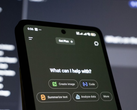Three years after the launch of ChatGPT, 65% of people now use generative AI on a regular basis – especially younger users. Among those aged 16 to 29, usage climbs to 91%, while 80% of people aged 30 to 49 also rely on these tools. The data comes from a representative survey of 1,005 participants conducted by the research institute Forsa between October 20 and 26, 2025. The results were presented (in German) by the TÜV Association on November 26 in Berlin.
ChatGPT remains by far the most widely used tool, with 85% of AI users turning to OpenAI’s application – well ahead of Google Gemini (33%), Microsoft Copilot (26%), DeepL (20%), and Meta AI (18%). Nearly half of all users engage with AI daily or several times a week. As expected, the most common use is research and information gathering, cited by 72% of respondents. This is followed by writing and editing tasks (43%) and creative activities such as brainstorming (38%). Interestingly, image and video editing play only a minor role, mentioned by just 16%.
Concerns remain
Despite the widespread use of AI and its growing presence in daily life, concerns remain. Half of all respondents worry about data misuse or hacking, and 51% already believe that AI-generated content is often mistaken for real. Even more striking, 91% think it will become increasingly difficult to distinguish genuine material from AI-created output. Unsurprisingly, this fuels serious concerns about misinformation – with 83% viewing it as a significant risk to society.
Half of the respondents say they have already encountered AI-manipulated videos. According to the TÜV Association, deepfakes have become a common issue. These highly convincing clips often feature real people, yet are entirely generated by AI. If you have had your own experiences with AI-created content or deepfakes, feel free to share them in the comments.
Source(s)
TÜV (in German)
Image source: Matheus Bertelli/Pexels















